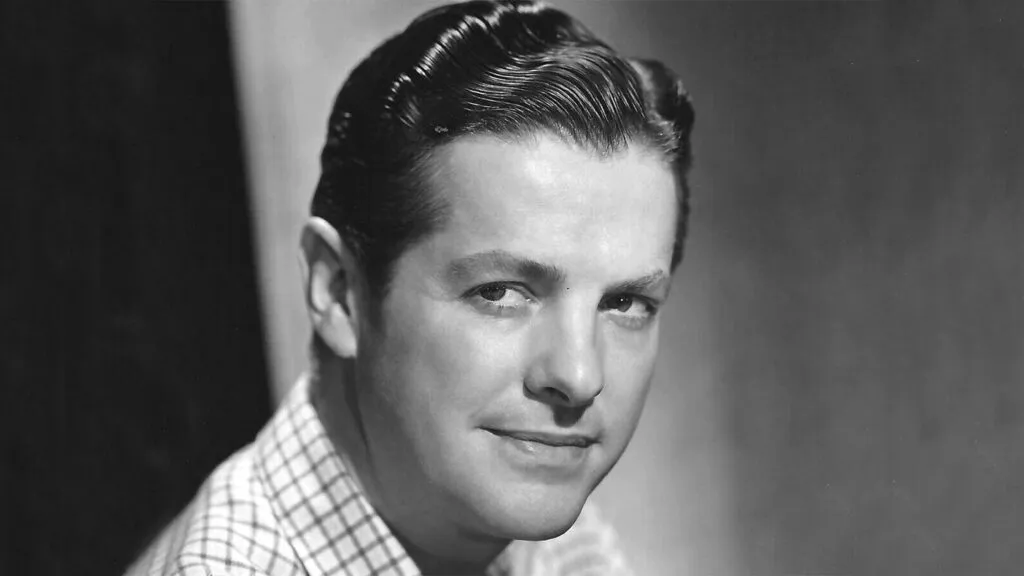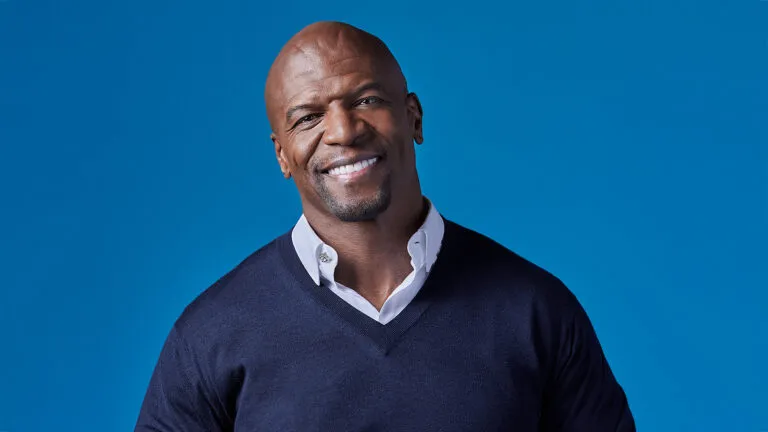I think the grimmest moment of my life came one day when I took a long look at myself and found I didn’t know who I was because all my working life I had been playing one masquerade after another. And I don’t mean the roles I had on stage or screen. I mean the series of impersonations I had palmed off as me.
For the first five years of my acting career, I, Charles Clarence Robert Orville Cummings, of Joplin, Missouri, was an Englishman named Blade Stanhope Conway. Then, literally overnight, I transformed myself into a drawling Texan. After that, I passed myself off as the heir to a mythical mining fortune. I remember those headlines yet: “Joplin, Mo., Kid Becomes Millionaire.”
And how did all this come about?
It was simple. I told the first lie. The others followed almost automatically. And yet that first lie seemed so excusable, so plausible at the time.
Back in the early thirties I gave up college and dreams of being an aeronautical engineer when the Depression, plus my Dad’s ill health, practically put me in the bread lines. My college roommate persuaded me that if I were going to starve, I might as well do it gracefully—as an actor in New York.
In 1931, Broadway was surviving by importing risk-free British plays that had already been hits in London. There was a great demand for British actors. Hunger can be the mother of invention. I decided to become British.
This necessitated cashing my one asset, a small insurance policy, making a cut-rate, round trip to England, and spending my allotted 29 days in the British Isles feverishly acquiring a British accent, British clothes from underwear to umbrella, and mailing my own advance publicity from Southampton to New York the day I sailed for home.
On arrival, Mr. Blade Stanhope Conway, that “young English actor-author not interested in money but desiring experience in the American theatre” was snatched past the breadlines and given a part in a play.
Dishonest, of course. But I took my role as gay deceiver lightly. I tried not to think of what my father would say. My dad, besides being a very fine doctor, had a tremendous respect for the truth. He had always assured me that “the innermost becomes the outermost; if you have a tricky personality, sooner or later it will show in your face.”
I remembered this sometimes. But whenever I did, I would look at Blade Stanhope Conway’s bank book and feel comforted.
Thus I went right on weaving my skeins of deceit, trying to remember my lines off-stage as well as on, until one fine day, four years later, I was caught in my own trap. I couldn’t get a job because I was “British.” I tried New York. I tried Hollywood. The Depression was over, and with it the need for British actors.
My Hollywood agent finally told me the bitter truth. “My boy,” he said, “we’ve got to drop you.”
I was in despair. My father was dead, now; my mother was living in Hollywood; I took my agent to see her. I resurrected my American passport, carefully concealed all these years. I tried valiantly to recover my Missouri twang. “I’m not English,” I kept saying in a decidedly British accent. “I’m Ameddican!”
“Amazing,” said my agent, finally convinced that I was none other than C. C. R. O. Cummings of Joplin, Missouri. And I knew an hour of relief. But only an hour. Then my agent called in high excitement. “Forget that Joplin bit, kid,” he said. “As of tomorrow morning, you’re from Texas.”
It was, he informed me, a very good part, but it had to be the real thing, a genuine Texan. And the director, King Vidor, was a Texan himself. I had had 29 days to transform myself into an Englishman. In 14 hours, working all night long, I shed my ancient British lineage and broad A, and acquired a hard-working family, a ranch in San Angelo, Texas, plus a toothpick and a slow drawl.
It worked. And so began my second masquerade.
As time passed, I developed a great admiration for King Vidor, and lived in constant fear that he would find me out. My conscience gnawed me every time he said, “The greatest assets an actor can have are kindness and honesty, particularly honesty. You can’t trick the camera; it sees right into your soul.”
Or I would feel that he was talking straight at me when he repeated his favorite quotation from Thackeray: “The world is a looking glass and gives back to every man the reflection of his own face.”
I’d try to console myself with the thought that I wasn’t hurting anybody but myself. The trouble was, I didn’t know just how true that was.
Then came the agonizing hour one day when I sat beside King Vidor to view the daily rushes of the kid from Texas. Suddenly onto the screen flashed a test made of Blade Stanhope Conway for The Lives of the Bengal Lancers.
“Amazing,” said Mr. Vidor, “how do you do it? And which one is you?”
“Neither,” I said shamefacedly. But I stayed a Texan because the publicity was out. And pretty soon, there I was again, caught in my own web. My range was limited. I could play only Southern parts. The burden of deceit was getting heavier.
Meanwhile, my mother had started going to church and attending religious lectures. Now and then I would go with her. My private life at that point wasn’t very satisfactory; it was, in a way, a reflection of my own confusion. A shadow, a fantasy, a chameleon can’t have a very real life. There wasn’t any real me for whom it could happen. This much I began to understand.
Finally one day I walked into the studio publicity office and announced: “I want to be me even if it wrecks my career.” Then I told them my story.
I walked out feeling much better. I thought I was free. But I wasn’t. Not too long after that I heard that I was going to be dropped by that studio. It jolted me right back into my old pattern of deception.
Immediately I thought of some worthless papers in an old trunk Mother had sent out from Joplin, title to half a mountain my father had bought in Goldfield, Nevada. “There’s gold there too,” Mother had said, “but I don’t think they’ve found a way to get the gold out.”
Well, I decided that it would be much better publicity to quit as a millionaire than to be dropped as an actor. So I purposely let hints fall in all the right places. The results were headlines: “Joplin, Mo., Kid Becomes Millionaire.”
Suddenly, I was horrified. It seemed as if the deceptions were now in the driver’s seat. How had it happened? Why had I done it?
It was at about this time that my mother began studying for the ministry. The more she learned, the more she talked about it, and the more I learned too. I began to see what had been happening to me.
The innermost had indeed become the outermost. My outer world was reflecting my own guilts and fears. I didn’t believe in myself any more, or in my talent, because I had constantly rejected the me that God created.
It didn’t seem to make any difference whether you started with a Little White Lie or a Big Black One. You were actually starting an unholy stream of errors that multiplied until they weighed you down mentally, physically, spiritually. That was what I had done.
The studio did drop me, despite my mythical millions, before I could quit, but when I went to a new studio, I walked right into the publicity department and said: “This time I tell it straight. I’m now Bob Cummings, no phony accent, no phony millions, and I stand or fall on that. I’ve spent too many years of my life walking a tightrope of twisted truth. Here’s where I cut the rope.”
The greatest things in my life have come to me since that moment. Some of my biggest pictures, my experience in the Air Force, my marriage to Mary, our five children, the Bob Cummings TV show giving me a chance to produce and direct as well as act, all these, plus peace of mind, have come to me since I began to try to uncover the real me, the individuality that God gave me.
I believe now, with all my heart, that we are all part of a Master Plan. There is no such thing as isolation. Anything I do to help you, helps me. Anything I do to hurt you, hurts me. If I deceive you, I deceive myself.
This is the truth that simplified my life. This is the truth that set me free.
For more inspiring stories, subscribe to Guideposts magazine.





